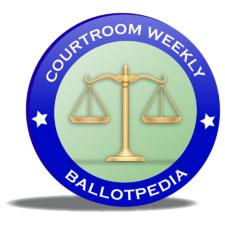| By Susan Lawrence
The Utah Supreme Court reversed a lower court ruling and determined a family may sue a Weber County sheriff's deputy involved in a 2010 high-speed chase which resulted in the death of their son, Wayne Torrie. In making the ruling, the court relied on a strict interpretation of a Utah state law which requires law enforcement officers and emergency vehicle operators to exercise reasonable care when driving to prevent both those who are being chased and bystanders from being injured. The statute exempts emergency vehicles from state traffic laws but requires the drivers of those vehicles to use caution when driving to prevent others from being injured. According to the supreme court, the statute does not exempt officers who are pursuing a suspect from also using reasonable care.
On March 23, 2010, Wayne Torrie took his family's SUV without permission after he came home from school. He was reportedly upset about being teased at school and had argued with one of his siblings. When his mother, Raeghn Torrie could not get her son to come home, she contacted the Cache County Sheriff’s Office for assistance.
A short time later, her son realized he was being pursued by law enforcement. He began sending his mother texts telling her he was afraid to go to jail and refused to stop. He told her he would crash the SUV and commit suicide because he did not want to be caught by the sheriff. At that time, his mother notified the Cache County Sheriff's Department that her son was suicidal.[11]
Torrie continued driving and eventually passed into neighboring Weber County. Officials from Cache County informed Weber County that Torrie could possibly be suicidal. Weber County Deputy Sheriff Denton Harper spotted Torrie and attempted to get him to pull over, but Torrie refused to stop his vehicle. According to Harper, Torrie began to speed away from him, while weaving back and forth between lanes, and Harper pursued. Although Harper indicated he reached speeds of 75 miles per hour during the chase, officials learned later Torrie had been traveling as fast as 90 miles per hour. Less than a minute into the chase, Torrie's vehicle veered off the road and rolled over multiple times. Torrie was thrown out of the car and died instantly.
The parents of Torrie filed a lawsuit saying the Weber County Sheriff's Department and Deputy Denton Harper were responsible for the death of their son because the deputy had not exercised proper care when he pursued their son on the high speed chase. Both parties filed summary judgment motions.
When the case came before Judge Robert J. Dale on the Second Judicial District Court in Utah, Weber County argued law enforcement officers may be required to avoid injuring bystanders during a high speed pursuit. However, they have no duty to prevent the person they are pursuing from being harmed during a police chase. The judge agreed with the county and dismissed the family's case.[12] In his ruling, the judge stated, "Defendants Weber County and Denton Harper owed no duty to Plaintiff's Decedent, Wayne Torrie". The family appealed the ruling to the supreme court.[11]
The supreme court found the district court had dismissed the family's case against Denton Harper prematurely.[11] The court noted a plain language interpretation of applicable Utah law requires law enforcement officers to drive in a reasonably prudent manner when pursuing someone during a high speed chase.
Peter Stirba, the attorney for Harper and the sheriff’s office, explained that the decision allows anyone to sue the police who chased them:
| “
|
If that person, for whatever reason, gets hurt, they can sue...It sort of creates a perverse incentive to a wrongdoer.[13][5]
|
”
|
The attorney for the family, Jim McConkie, had a different view:
| “
|
Police officers have rules and regulations they’re supposed to follow. . . (t)hey’re not supposed to chase people if they haven’t committed serious offenses and aren’t a threat to the community.[13][5]
|
”
|
The case will be returned to the district court so the case against Deputy Denton Harper can be decided. However, the case against the Weber County Sheriff's Department remains dismissed per the original district court ruling. | 







